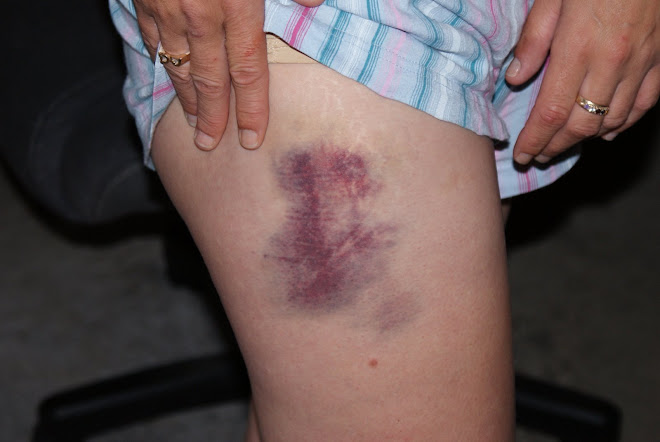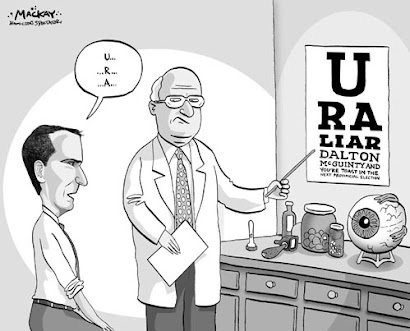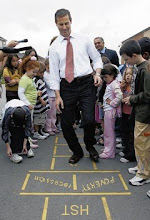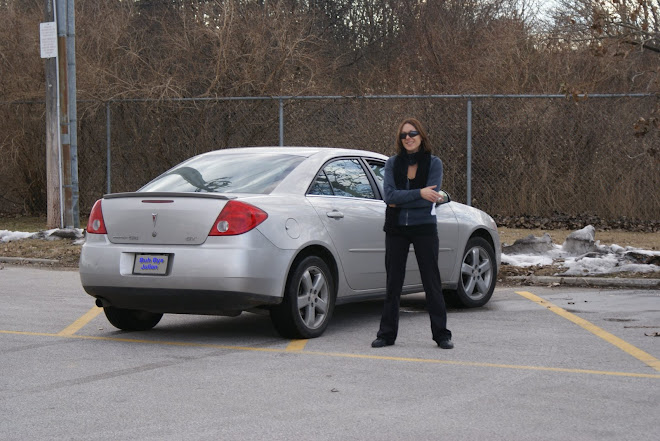Source:The Spec
Doel's lawyer needs more time to study disclosure
May 28, 2010
Susan Clairmont
The lawyer for a suspended Hamilton police inspector has asked for more time to review new disclosure he will receive regarding his client.
During a conference call this morning, Toronto lawyer Harry Black requested the matter be put off so he can review a binder of material that he is expecting to receive next week. The case regarding Inspector Dave Doel has been put over a number of times already so Black can examine “voluminous” amounts of information that has been disclosed by the prosecutor.
Doel faces 14 charges under the Police Services Act. The accusations against the 26-year veteran include: having sex on duty; having pornography on his work computer; using police surveillance equipment -- specifically security cameras -- for his own purposes; obtaining access to telephone equipment under false pretenses while on duty; and using a police electronic device on police computers to get members’ personal information.
The next conference call will be held June 28.
Friday, May 28, 2010
Thursday, May 27, 2010
Ottawa police officer arrested again
Source:The Recorder
Posted By RONALD ZAJAC, STAFF WRITER
An Ottawa police officer charged with assault in a domestic incident in Brockville has been re-arrested for breaching one of his bail conditions, city police said.
City police Insp. Scott Fraser said Friday morning he could not reveal any details of the latest incident.
"He had a lot of conditions and he breached one," said Fraser.
"It happened almost immediately following his release."
The accused, whom police are not naming, was in custody and scheduled to appear in Brockville court Friday afternoon for a bail hearing on a separate charge of breach of recognizance, said Fraser.
The 48-year-old officer was off duty Tuesday when the attack reportedly occurred in Brockville, where he lives.
Police are not releasing the man's name "in order to protect the victim's privacy and prevent further victimization, as the charge relates to a domestic situation."
The Ottawa police professional standards unit is also investigating the assault.
The officer had been assigned to administrative duties pending the outcome of the criminal charges.
Posted By RONALD ZAJAC, STAFF WRITER
An Ottawa police officer charged with assault in a domestic incident in Brockville has been re-arrested for breaching one of his bail conditions, city police said.
City police Insp. Scott Fraser said Friday morning he could not reveal any details of the latest incident.
"He had a lot of conditions and he breached one," said Fraser.
"It happened almost immediately following his release."
The accused, whom police are not naming, was in custody and scheduled to appear in Brockville court Friday afternoon for a bail hearing on a separate charge of breach of recognizance, said Fraser.
The 48-year-old officer was off duty Tuesday when the attack reportedly occurred in Brockville, where he lives.
Police are not releasing the man's name "in order to protect the victim's privacy and prevent further victimization, as the charge relates to a domestic situation."
The Ottawa police professional standards unit is also investigating the assault.
The officer had been assigned to administrative duties pending the outcome of the criminal charges.
Crown drops confinement, assault charges against cop
Source: The Spec
May 27, 2010
The Hamilton Spectator
(May 27, 2010)
Charges of sexual assault and forcible confinement against a Burlington police constable have been dropped after a special prosecutor from the Hamilton Crown's office determined a reasonable prospect of conviction did not exist.
Constable Melanie Fedun, 32, was charged with three counts of assault in early March after police investigated a complaint made by a man.
Halton police did not elaborate on the alleged assaults, but said the investigation was of incidents in Georgetown from February to November of last year.
Fedun, a uniformed patrol officer assigned to Burlington, had been suspended without pay.
The special prosecutor withdrew all criminal charges against her last week in the Ontario Court of Justice in Milton.
May 27, 2010
The Hamilton Spectator
(May 27, 2010)
Charges of sexual assault and forcible confinement against a Burlington police constable have been dropped after a special prosecutor from the Hamilton Crown's office determined a reasonable prospect of conviction did not exist.
Constable Melanie Fedun, 32, was charged with three counts of assault in early March after police investigated a complaint made by a man.
Halton police did not elaborate on the alleged assaults, but said the investigation was of incidents in Georgetown from February to November of last year.
Fedun, a uniformed patrol officer assigned to Burlington, had been suspended without pay.
The special prosecutor withdrew all criminal charges against her last week in the Ontario Court of Justice in Milton.
Wednesday, May 26, 2010
Two recent Toronto deaths
Source:TPAC
Two individuals have been killed by Toronto police during the past month. Both deaths have been greeted by the usual police silence about what happened.
Weilaw Duda was killed by police bullets in the port lands on April 19, and the photographs published in the newspapers make it very clear that bullets shattered the windows of the vehicle he was in. Apparently more than a dozen bullets were fired (Duda was unarmed and apparently the incident began because an officer said Duda s car injured him, although the officer was immediately released from the hospital and returned to duty), and there were at least six officers on the scene.
There is a policy in place in the Toronto police service which states: Police officers may not discharge a firearm at a vehicle for the purpose of disabling the vehicle. Police officers may not discharge a firearm at the operator or the occupants of a motor vehicle unless there exists an immediate threat of death or grievous bodily harm to an officer or to a member of the public by means other than the vehicle.
The policy was under consideration at the recent inquest into the death of a youth, Duane Christian, who was shot and killed by police in 2006. In 2006, the policy was worded slightly differently, but in 2008 it was amended to preclude shooting at drivers unless they are threatening death or grievous bodily harm by means other than the vehicle (such as by shooting at people). At the inquest the officer who did the shooting testified that he would act in the same way today in spite of the policy since he disagrees with it. A staff sergeant testified to the same effect.
TPAC has written Toronto Police Service Board members and chief asking for an
an assurance that this policy will be enforced by management. If it had been enforced, Duda would be alive today.
Last week Toronto police officers chased an 18 year old student, Junior Alexander Manon, from a car near York University, caught up to him, and then said he died of a heart attack. Selwyn Pieters, the family s lawyer, saw the body at the morgue and said The issue of a heart attack is a fiction. It seems that he died from physical force.
The Special Investigation Unit has identified the ten police officers to talk to, eight as witnesses.
Junior Manon was a well known and well liked youth in his North York neighbourhood. Hopefully independent witnesses can be tracked down to confirm what really happened. Many in Manon's Jane/Finch neighbourhood will come to the conclusion that this is an example of the ultimate form of racial profiling practiced by police. Events like this, combined with the recent massive raids on racialized and poor neighbourhoods that caught up innocent youth along with a few gang members, will sooner or later lead to social unrest. Will the police force change its ways to diffuse this situation? Will the Police Services Board intervene and show some leadership, by acknowledging these tragedies and vowing to find ways to ensure that police minimize their use of force?
Making sure the evidence fits
When civilians have been seriously injured in incidents involving police officers, the Special Investigations Unit is supposed to be called in as soon as possible in order to separate subject and witness officers and other witnesses for questioning. The SIU and many others have serious concerns that officers talk about events they have seen, agree on what happened, and then write that version of the story up in their notes. There are also concerns about cases where officers do not want to cooperate with the Special Investigations Unit, resulting in interviews that get delayed for a few hours, a few days or even a few weeks.
What has now emerged is that often the officers who think the SIU will want to talk to them, meet and retain a common lawyer. While those lawyers say they play no role in shaping a common story among their clients, legal practice is that a lawyer should share information among those he represents on a case. As the Toronto Star puts it, delicately, in an editorial on May 7, this process opens the door to potential collusion.
Worse, this practise is directly contrary to Regulation 673/98 passed under the Police Services Act. Section 6 of that regulation states The chief of police shall, to the extent that it is practicable, segregate all the police officers involved in the incident from each other until after the SIU has completed its interviews, and A police officer involved in the incident shall not communicate with any other police officer involved in the incident concerning their involvement in the incident until after the SIU has completed its interviews.
Those sections do not provide an exception if the officers happen to share a common lawyer.
The SIU has decided, along with lawyers representing the families of two men who were killed last year by the Ontario Provincial Police, to challenge this practice in a court hearing. Lawyers for the officers apparently will argue that this is not a matter the court needs to decide in this case. The day before the hearing on the motion was to begin, the Attorney General pulled its lawyers who were representing the SIU, from the case, leading to fears that the AG s office had buckled to police pressure. At the time of the publication of this newsletter, the hearing had not been completed and the court had not released a decision.
Two individuals have been killed by Toronto police during the past month. Both deaths have been greeted by the usual police silence about what happened.
Weilaw Duda was killed by police bullets in the port lands on April 19, and the photographs published in the newspapers make it very clear that bullets shattered the windows of the vehicle he was in. Apparently more than a dozen bullets were fired (Duda was unarmed and apparently the incident began because an officer said Duda s car injured him, although the officer was immediately released from the hospital and returned to duty), and there were at least six officers on the scene.
There is a policy in place in the Toronto police service which states: Police officers may not discharge a firearm at a vehicle for the purpose of disabling the vehicle. Police officers may not discharge a firearm at the operator or the occupants of a motor vehicle unless there exists an immediate threat of death or grievous bodily harm to an officer or to a member of the public by means other than the vehicle.
The policy was under consideration at the recent inquest into the death of a youth, Duane Christian, who was shot and killed by police in 2006. In 2006, the policy was worded slightly differently, but in 2008 it was amended to preclude shooting at drivers unless they are threatening death or grievous bodily harm by means other than the vehicle (such as by shooting at people). At the inquest the officer who did the shooting testified that he would act in the same way today in spite of the policy since he disagrees with it. A staff sergeant testified to the same effect.
TPAC has written Toronto Police Service Board members and chief asking for an
an assurance that this policy will be enforced by management. If it had been enforced, Duda would be alive today.
Last week Toronto police officers chased an 18 year old student, Junior Alexander Manon, from a car near York University, caught up to him, and then said he died of a heart attack. Selwyn Pieters, the family s lawyer, saw the body at the morgue and said The issue of a heart attack is a fiction. It seems that he died from physical force.
The Special Investigation Unit has identified the ten police officers to talk to, eight as witnesses.
Junior Manon was a well known and well liked youth in his North York neighbourhood. Hopefully independent witnesses can be tracked down to confirm what really happened. Many in Manon's Jane/Finch neighbourhood will come to the conclusion that this is an example of the ultimate form of racial profiling practiced by police. Events like this, combined with the recent massive raids on racialized and poor neighbourhoods that caught up innocent youth along with a few gang members, will sooner or later lead to social unrest. Will the police force change its ways to diffuse this situation? Will the Police Services Board intervene and show some leadership, by acknowledging these tragedies and vowing to find ways to ensure that police minimize their use of force?
Making sure the evidence fits
When civilians have been seriously injured in incidents involving police officers, the Special Investigations Unit is supposed to be called in as soon as possible in order to separate subject and witness officers and other witnesses for questioning. The SIU and many others have serious concerns that officers talk about events they have seen, agree on what happened, and then write that version of the story up in their notes. There are also concerns about cases where officers do not want to cooperate with the Special Investigations Unit, resulting in interviews that get delayed for a few hours, a few days or even a few weeks.
What has now emerged is that often the officers who think the SIU will want to talk to them, meet and retain a common lawyer. While those lawyers say they play no role in shaping a common story among their clients, legal practice is that a lawyer should share information among those he represents on a case. As the Toronto Star puts it, delicately, in an editorial on May 7, this process opens the door to potential collusion.
Worse, this practise is directly contrary to Regulation 673/98 passed under the Police Services Act. Section 6 of that regulation states The chief of police shall, to the extent that it is practicable, segregate all the police officers involved in the incident from each other until after the SIU has completed its interviews, and A police officer involved in the incident shall not communicate with any other police officer involved in the incident concerning their involvement in the incident until after the SIU has completed its interviews.
Those sections do not provide an exception if the officers happen to share a common lawyer.
The SIU has decided, along with lawyers representing the families of two men who were killed last year by the Ontario Provincial Police, to challenge this practice in a court hearing. Lawyers for the officers apparently will argue that this is not a matter the court needs to decide in this case. The day before the hearing on the motion was to begin, the Attorney General pulled its lawyers who were representing the SIU, from the case, leading to fears that the AG s office had buckled to police pressure. At the time of the publication of this newsletter, the hearing had not been completed and the court had not released a decision.
Bryant charges withdrawn
Source:NOWMichael Bryant, ex-AG and involved in cyclist death, will not face charges
By Enzo Di Matteo
The Sun is reporting that the special Crown appointed to review charges against former AG Michael Bryant in the horrific death of cyclist Darcy Allan Sheppard will recommend dropping the charges.
The reasons are reportedly on the basis that there is no likelihood of a conviction in the case.
Interesting reasoning, given the handful of eyewitness accounts in the minutes following the incident on Bloor where it was reported that the car Bryant was driving looked like it swerved violently before deliberately dragging Sheppard into a mailbox and other assorted street furniture on the sidewalk opposite the direction Bryant’s car was traveling.
While the prospect of conviction in this case may have been on the lower end of the scale – the waters were certainly muddied enough by the campaign of leaks undertaken by the PR firm hired by Bryant to stickhandle the controversy – it’s unlikely that they would have been completely dropped if the person behind the wheel had been anyone but a former AG.
Besides the timing of the announcement, on the day after a long holiday weekend, it’s also noteworthy that the other question, whether pursuing the charges against Bryant would have been in the public interest, is something the Crown will not be delving into to explain the dropping of charges in this case.
That’s probably because that argument would be harder for the Crown to make.
Clearly, it is in the public interest, given what we know about the nature of the incident and the fact Bryant is a high profile person of some influence, for justice not only to be done, but to be seen to be done. And that would mean a trial for Bryant before a jury of his peers to let the chips fall where they may.
Even if Bryant were found not guilty, at least the public would have some confidence that the legal test of beyond a reasonable doubt was met followed in court. Now we’ll never know. More on this story as it happens.
By Enzo Di Matteo
The Sun is reporting that the special Crown appointed to review charges against former AG Michael Bryant in the horrific death of cyclist Darcy Allan Sheppard will recommend dropping the charges.
The reasons are reportedly on the basis that there is no likelihood of a conviction in the case.
Interesting reasoning, given the handful of eyewitness accounts in the minutes following the incident on Bloor where it was reported that the car Bryant was driving looked like it swerved violently before deliberately dragging Sheppard into a mailbox and other assorted street furniture on the sidewalk opposite the direction Bryant’s car was traveling.
While the prospect of conviction in this case may have been on the lower end of the scale – the waters were certainly muddied enough by the campaign of leaks undertaken by the PR firm hired by Bryant to stickhandle the controversy – it’s unlikely that they would have been completely dropped if the person behind the wheel had been anyone but a former AG.
Besides the timing of the announcement, on the day after a long holiday weekend, it’s also noteworthy that the other question, whether pursuing the charges against Bryant would have been in the public interest, is something the Crown will not be delving into to explain the dropping of charges in this case.
That’s probably because that argument would be harder for the Crown to make.
Clearly, it is in the public interest, given what we know about the nature of the incident and the fact Bryant is a high profile person of some influence, for justice not only to be done, but to be seen to be done. And that would mean a trial for Bryant before a jury of his peers to let the chips fall where they may.
Even if Bryant were found not guilty, at least the public would have some confidence that the legal test of beyond a reasonable doubt was met followed in court. Now we’ll never know. More on this story as it happens.
Monday, May 24, 2010
Ex-police inspector guilty of fraud
Source: The Hamilton Spectator
May 23, 2010
Susan Clairmont
The Hamilton Spectator
A former police inspector who pleaded guilty on Friday to stealing money seized from drug busts claims he gave the money to charities.
Like some kind of Robin Hood, Rick Wills says he took nearly $60,000 from accused drug dealers and anonymously donated the cash to local charities "which support those people in our community affected by the ravages surrounding the illegal drug trade."
Initially Wills -- who once commanded the vice and drugs unit -- faced 54 criminal charges, but pleaded guilty to just one count of fraud over $5,000 and one count of breach of trust. A dozen pages of detailed allegations involving frauds spanning eight years from 1998 to 2006 were read into the record. Despite all that information, not one word was said during Wills's court appearance as to why he took the money.
Outside court, however, Wills gave The Spectator a brief and cryptic explanation for his crimes.
"Seized property assets, " he said. When asked if he was referring to his own case, or more generally to the system of seized property assets, Wills said he meant the whole system, insinuating there is something fishy about it. He would not elaborate.
Wills also confirmed to The Spectator that he wrote a letter that was dropped off recently to the Neighbour to Neighbour Centre.
A man came to the Athens Street centre with the letter and items to donate to the food bank, says executive director Denise Arkell.
Wills writes in his letter that he has "lived and worked in Hamilton for thirty years." He does not identify himself as a police officer.
He writes that between 2004 and 2007 he made numerous anonymous donations to more than 13 charities, totalling about $55,000.
That happens to be the same amount Wills must still make restitution for. He came to court yesterday with a $5,000 personal cheque made out to the City of Hamilton to kick off the repayment process.
His letter goes on to say that "the ledger I maintained to keep track of these donations went missing from my home in 2009 and I now find myself in circumstances where I am forced to identify these contributions." He asks if Neighbour to Neighbour can give him proof they received cash donations for $200 to $300, which were either mailed or dropped off by him.
He includes his photo and telephone number.
Arkell says she checked to see if Wills had ever made any donations to her organization under his name and he hadn't. So she didn't pursue the request any further.
Wills, a 26-year veteran, was one of Hamilton police's highest profile commanding officers before resigning under a cloud of suspicion in August 2008. Soon afterward, Hamilton police called in the OPP to investigate Wills.
While a staff sergeant in charge of vice and drugs from 1999 to 2004, Wills managed the Police Confiscated Funds account, a general bank account operated by the City of Hamilton. Cash seized from accused people was deposited in the account until their case was decided. Depending on the trial outcome, the money would either be transferred to the federal Seized Property Management Directorate or returned to the lawful owner.
But time after time, Wills requested cheques from the police accounting department, saying money had been ordered returned to the accused when it fact it hadn't. He forged the accused's signature endorsing the cheque over to himself, signed his own signature, and deposited it into his personal bank account at TD Canada Trust.
The fraud scheme was extremely unsophisticated. Particularly considering Wills once ran the major fraud unit.
For instance, Wills forged the signature of a man who was currently locked up in Kingston Penitentiary. Twice. For a total of more than $34,000.
Another time, Wills e-mailed the accountant alleging that money was to be returned to an accused. Wills said the cheque should be given to him so he could deliver it personally, since the rightful owner lived at the notorious Sandbar tavern and apartments, a now defunct crack den and flophouse. "If it gets mailed there it will likely go missing, " Wills said in his e-mail.
In a case that does not fit the pattern of the others, Wills signed out an evidence bag containing $2,775 cash seized during a drug bust involving Hamilton police and the Provincial Biker Enforcement Unit. Wills admits he did not give the money to the City of Hamilton for deposit or to the Seized Property Assets.
Wills, who is represented by Toronto lawyer John Rosen, will appear again in October to provide the court with an update on his payments. In January he will appear for sentencing.
Susan Clairmont's commentary appears regularly in The Spectator.
sclairmont@thespec.com
905-526-3539
May 23, 2010
Susan Clairmont
The Hamilton Spectator
A former police inspector who pleaded guilty on Friday to stealing money seized from drug busts claims he gave the money to charities.
Like some kind of Robin Hood, Rick Wills says he took nearly $60,000 from accused drug dealers and anonymously donated the cash to local charities "which support those people in our community affected by the ravages surrounding the illegal drug trade."
Initially Wills -- who once commanded the vice and drugs unit -- faced 54 criminal charges, but pleaded guilty to just one count of fraud over $5,000 and one count of breach of trust. A dozen pages of detailed allegations involving frauds spanning eight years from 1998 to 2006 were read into the record. Despite all that information, not one word was said during Wills's court appearance as to why he took the money.
Outside court, however, Wills gave The Spectator a brief and cryptic explanation for his crimes.
"Seized property assets, " he said. When asked if he was referring to his own case, or more generally to the system of seized property assets, Wills said he meant the whole system, insinuating there is something fishy about it. He would not elaborate.
Wills also confirmed to The Spectator that he wrote a letter that was dropped off recently to the Neighbour to Neighbour Centre.
A man came to the Athens Street centre with the letter and items to donate to the food bank, says executive director Denise Arkell.
Wills writes in his letter that he has "lived and worked in Hamilton for thirty years." He does not identify himself as a police officer.
He writes that between 2004 and 2007 he made numerous anonymous donations to more than 13 charities, totalling about $55,000.
That happens to be the same amount Wills must still make restitution for. He came to court yesterday with a $5,000 personal cheque made out to the City of Hamilton to kick off the repayment process.
His letter goes on to say that "the ledger I maintained to keep track of these donations went missing from my home in 2009 and I now find myself in circumstances where I am forced to identify these contributions." He asks if Neighbour to Neighbour can give him proof they received cash donations for $200 to $300, which were either mailed or dropped off by him.
He includes his photo and telephone number.
Arkell says she checked to see if Wills had ever made any donations to her organization under his name and he hadn't. So she didn't pursue the request any further.
Wills, a 26-year veteran, was one of Hamilton police's highest profile commanding officers before resigning under a cloud of suspicion in August 2008. Soon afterward, Hamilton police called in the OPP to investigate Wills.
While a staff sergeant in charge of vice and drugs from 1999 to 2004, Wills managed the Police Confiscated Funds account, a general bank account operated by the City of Hamilton. Cash seized from accused people was deposited in the account until their case was decided. Depending on the trial outcome, the money would either be transferred to the federal Seized Property Management Directorate or returned to the lawful owner.
But time after time, Wills requested cheques from the police accounting department, saying money had been ordered returned to the accused when it fact it hadn't. He forged the accused's signature endorsing the cheque over to himself, signed his own signature, and deposited it into his personal bank account at TD Canada Trust.
The fraud scheme was extremely unsophisticated. Particularly considering Wills once ran the major fraud unit.
For instance, Wills forged the signature of a man who was currently locked up in Kingston Penitentiary. Twice. For a total of more than $34,000.
Another time, Wills e-mailed the accountant alleging that money was to be returned to an accused. Wills said the cheque should be given to him so he could deliver it personally, since the rightful owner lived at the notorious Sandbar tavern and apartments, a now defunct crack den and flophouse. "If it gets mailed there it will likely go missing, " Wills said in his e-mail.
In a case that does not fit the pattern of the others, Wills signed out an evidence bag containing $2,775 cash seized during a drug bust involving Hamilton police and the Provincial Biker Enforcement Unit. Wills admits he did not give the money to the City of Hamilton for deposit or to the Seized Property Assets.
Wills, who is represented by Toronto lawyer John Rosen, will appear again in October to provide the court with an update on his payments. In January he will appear for sentencing.
Susan Clairmont's commentary appears regularly in The Spectator.
sclairmont@thespec.com
905-526-3539
Subscribe to:
Posts (Atom)
They had No Choice!

They wore these or I took away thier toys for 7 days!
"Damn Street Racer"pays with Brusies















